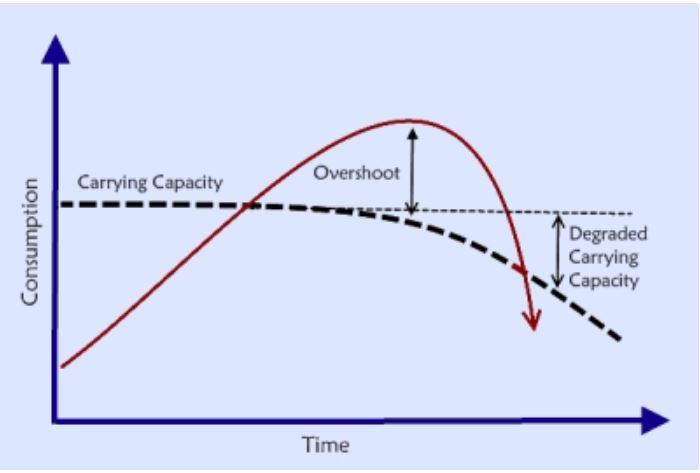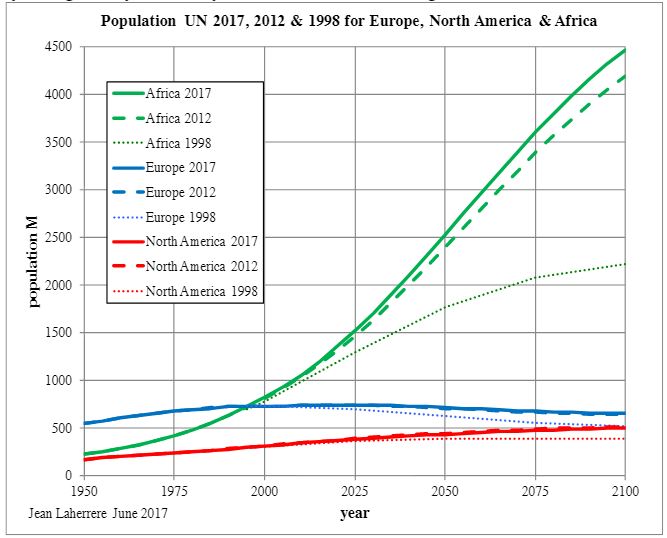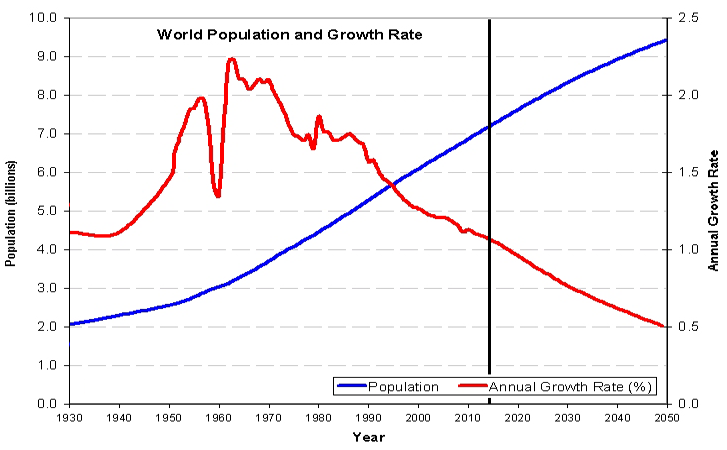Wiki’s take on Jean Raspail’s prophetic novel, The Camp of the Saints:
The Camp of the Saints is a novel about population migration and its consequences. In Calcutta India, the Belgian government announces a policy in which Indian babies will be adopted and raised in Belgium. The policy is reversed after the Belgian consulate is inundated with poverty-stricken parents eager to give up their infant children.
An Indian “wise man” then rallies the masses to make a mass exodus to live in Europe. Most of the story centers on the French Riviera, where almost no one remains except for the military and a few civilians, including a retired professor who has been watching the huge fleet of run-down freighters approaching the French coast.
The story alternates between the French reaction to the mass immigration and the attitude of the immigrants. They have no desire to assimilate into French culture but want the goods that are in short supply in their native India. Although the novel focuses on France, the rest of the West shares its fate.
Near the end of the story the mayor of New York City is made to share Gracie Mansion with three families from Harlem, the Queen of the United Kingdom must agree to have her son marry a Pakistani woman, and only one drunken Soviet soldier stands in the way of thousands of Chinese people as they swarm into Siberia. The one holdout until the end of the novel is Switzerland, but by then international pressure isolating it as a rogue state for not opening its borders forces it to capitulate.
The novel was published 42 years ago but it is suddenly back in the news again, ‘Camp of The Saints’ Seen Mirrored In Pope’s Message.
Pope Francis is urging America to throw open her borders to thousands of impoverished migrants, in part to atone for the “sins of the colonial era.
“We must not repeat the sins and the errors of the past. We must resolve now to live as nobly and as justly as possible,” he declared before a joint session of Congress. “Thousands of persons are led to travel north in search of a better life for themselves and for their loved ones, in search of greater opportunities…We must not be taken aback by their numbers.”
Indeed, as the Pope addressed the nation today it is clear that the immigration issue has hit a boiling point. Headlines blare:
European Migrant Crisis: Austria, Germany Near Tipping Point… As Europe Grasps For Answers, More Migrants Flood Its Border… Pope Francis Urges Congress To Embrace Migrants… Western and UN Aid Falling Far Short… Five More Fleets On The Way, From Africa, India and Asia… Refugee Fleet Is Headed For Europe, For France…
The last three headlines, however, are ripped not from today’s papers, but from the pages of a controversial 1973 French novel by Jean Raspail, which many say has predicted with shocking accuracy the events unfolding today.
The novel, which has been translated into English, is entitled Camp of the Saints, and posits that the liberalism of the West would cause Western nations to throw open their doors to so many migrants that it would spell the doom of liberal society itself. Raspail’s thesis, quite simply, is that liberalism is inadequate to defend liberalism.
Being a lifelong liberal myself, I find that last sentence shockingly true. We love all mankind and that love will be the roots of our downfall. I see the shocking pictures of the tens of thousands fleeing the war torn areas of the Middle East. They are not fleeing into other overpopulated countries like India or Pakistan but into the relatively low population countries of Europe. And of course the US has volunteered to take its “fair share” of the masses. But they will not stop coming. Overpopulation, by its very nature, breeds war and insurrection.
Garrett Hardin thrashed this straw for the last 40 years of his life. He saw clearly what was happening and tried to warn the world. But he was the Cassandra of his time, the only ones who paid any attention to his message were those who were already aware of the problem.
Hardin wrote The Tragedy of the Commons in 1968, three years after his first major work, Nature and Man’s Fate. Harding ended most of his works with a few paragraphs or pages describing what we must do to avoid disaster. Here are the last two paragraphs of The Tragedy of the Commons:
The most important aspect of necessity that we must now recognize, is the necessity of abandoning the commons in breeding. No technical solution can rescue us from the misery of overpopulation. Freedom to breed will bring ruin to all. At the moment, to avoid hard decisions many of us are tempted to propagandize for conscience and responsible parenthood. The temptation must be resisted, because an appeal to independently acting consciences selects for the disappearance of all conscience in the long run, and an increase in anxiety in the short.
The only way we can preserve and nurture other and more precious freedoms is by relinquishing the freedom to breed, and that very soon. “Freedom is the recognition of necessity”–and it is the role of education to reveal to all the necessity of abandoning the freedom to breed. Only so, can we put an end to this aspect of the tragedy of the commons.
Many others have written on the overpopulation and food supply problem. Lester Brown is one of the most prolific writers on the subject. Lester also ends his work with “What we must do”. He even wrote one entire book and 4 revisions of that book on the subject of what we must do to save civilization:
Plan B 4.0: Mobilizing to Save Civilization (Substantially Revised).
I have some very bad news for Lester and all the other authors who write of the actions required to avoid any future disasters brought about by overpopulation, global warming or depletion of natural resources: The vast majority of people just don’t believe a damn word of it.
Francis Bacon wrote: “Man prefers to believe what he prefers to be true.” And that is what the vast majority of people do. Only a tiny minority of people are capable of looking at the facts and are able to then believe what they would very much desire to be untrue, what they would desire not to believe.
Denial of the undesirable consequences of overpopulation, or any other nasty problems looming in our future, is innate for the vast majority of the human race, it is of our very nature. It is just what we do and there is no way to change that fact. If there are some very nasty facts out there, something that suggests that our future, and particularly the future of our children an grandchildren will not be as we would like it to be, we will simply deny those facts. We will go even further than that, we will organize resistance groups, create institutions and experts that will legitimize our denial.
This means of course that, in the minds of the vast majority of the people, the problems do not exist. We will do nothing because in our minds there is nothing that needs to be done.
________________________________________________________
Notice: The thread on JODI Data and Giant Field Depletion is still open. Please post all comments on oil and other subjects there and limit posts on this thread to the subjects mentioned in this post.


